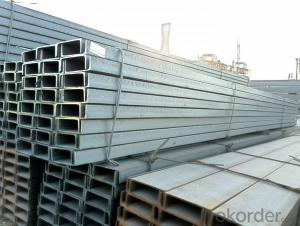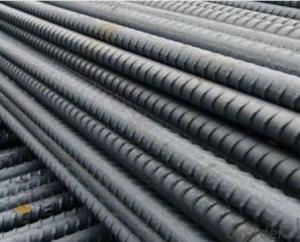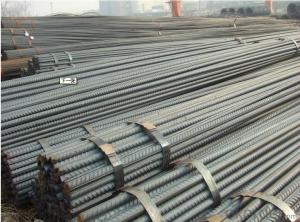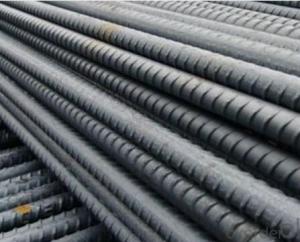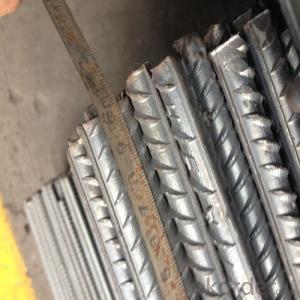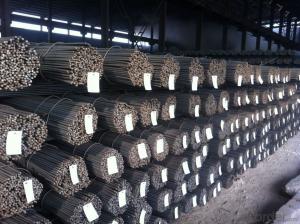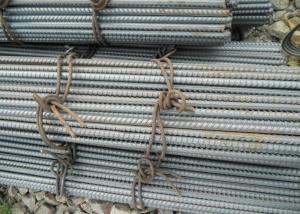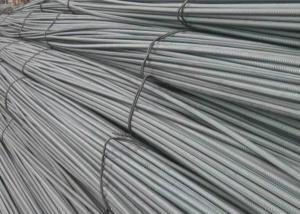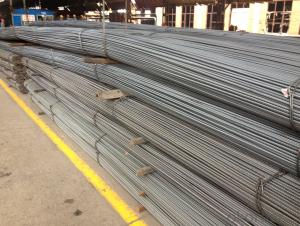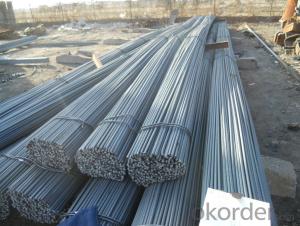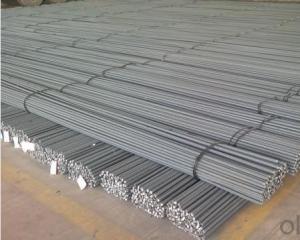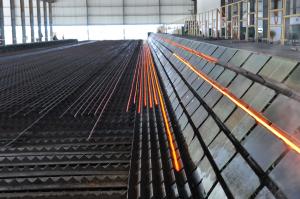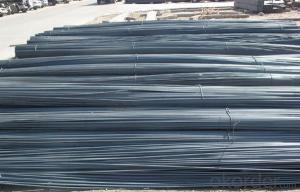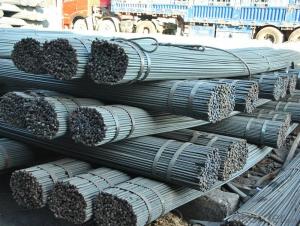JIS Standard U-channels with best quality
- Loading Port:
- Tianjin
- Payment Terms:
- TT OR LC
- Min Order Qty:
- 25 m.t.
- Supply Capability:
- 10000 m.t./month
OKorder Service Pledge
OKorder Financial Service
You Might Also Like
Product Description:
| Minimum Order Quantity: | 25MT | Unit: | m.t. | Loading Port: | Xingang Port |
| Supply Ability: | 120000TON/Year | Payment Terms: | TT or LC |
Product Applications:
JIS Standard U-channels are ideal for structural applications and are widely used in the construction of buildings and bridges, and the manufacturing, petrochemical, and transportation industries.
Product Advantages:
OKorder's JIS Standard U-channels are durable, strong, and resist corrosion.
Main Product Features:
· Premium quality
· Prompt delivery & seaworthy packing (30 days after receiving deposit)
· Corrosion resistance
· Can be recycled and reused
· Mill test certification
· Professional Service
· Competitive pricing
Product Specifications:
Manufacture: Hot rolled
Grade: Q195 – 235
Certificates: ISO, SGS, BV, CIQ
Length: 6m – 12m, as per customer request
Packaging: Export packing, nude packing, bundled
1. We are definitely speciallizing in manufacturing and supplying channel steel as per japanese standard, which is characterised with high mechanical strength and competitive prices.
Original Place | Tangshan, China | Brand Name | UINDA |
Standard | JIS G3192 : 1990 | ||
Material Grade | SS490 | ||
Sizes | 50mm to 200mm | ||
Sales Volume/Year | 3000MT | ||
Destination Area | Middle East, Africa, Southeast Asia | ||
2. The sections in details are as followings in the table-1
JIS U CHANNEL | Standard | Sectional | Dimension |
| Mass: |
| (mm) | (mm) | (mm) | (mm) |
|
50x25 | 50 | 25 | 3.0 | 6.00 | 2.37 |
75X40 | 75 | 40 | 3.8 | 7.00 | 5.30 |
75X40 | 75 | 40 | 4.0 | 7.00 | 5.60 |
75X40 | 75 | 40 | 4.5 | 7.00 | 5.85 |
75X40 | 75 | 40 | 5.0 | 7.00 | 6.92 |
|
|
|
|
|
|
100X50 | 100 | 50 | 3.8 | 6.00 | 7.30 |
100X50 | 100 | 50 | 4.2 | 6.00 | 8.03 |
100X50 | 100 | 50 | 4.5 | 7.50 | 8.97 |
100X50 | 100 | 50 | 5.0 | 7.50 | 9.36 |
|
|
|
|
|
|
125X65 | 125 | 65 | 5.2 | 6.80 | 11.66 |
125X65 | 125 | 65 | 5.3 | 6.80 | 12.17 |
125X65 | 125 | 65 | 5.5 | 8.00 | 12.91 |
125X65 | 125 | 65 | 6.0 | 8.00 | 13.40 |
|
|
|
|
|
|
150x75 | 150 | 75 | 5.5 | 7.30 | 14.66 |
150x75 | 150 | 75 | 5.7 | 10.00 | 16.71 |
150x75 | 150 | 75 | 6.0 | 10.00 | 17.90 |
150x75 | 150 | 75 | 6.5 | 10.00 | 18.60 |
150x75 | 150 | 75 | 6.5 | 10.00 | 24.00 |
|
|
|
|
|
|
200X80 | 200 | 80 | 7.5 | 11.00 | 24.60 |
Table-1
3. The mechanical property of JIS U Channel Steel in the table-2:
Grade | Yield Strength,N/mm² | Extension Strength N/mm² | |||
Thickness of Steel,mm | |||||
≦16 | >16-≦40 | >40-≦100 | >100 | ||
SS490 | ≧285 | ≧275 | ≧255 | ≧245 | 490-610 |
Table-2
4. The chemical composition of JIS U Channel Steel as per SS490 in the table-3
Grade | Element(%) | |||
C | Mn | P | S | |
SS490 | - | - | ≦0.050 | ≦0.050 |
Table-3
FAQ:
Q1: Why buy Materials & Equipment from OKorder.com?
A1: All products offered by OKorder.com are carefully selected from China's most reliable manufacturing enterprises. Through its ISO certifications, OKorder.com adheres to the highest standards and a commitment to supply chain safety and customer satisfaction.
Q2: What makes stainless steel stainless?
A2: Stainless steel must contain at least 10.5 % chromium. It is this element that reacts with the oxygen in the air to form a complex chrome-oxide surface layer that is invisible but strong enough to prevent further oxygen from "staining" (rusting) the surface. Higher levels of chromium and the addition of other alloying elements such as nickel and molybdenum enhance this surface layer and improve the corrosion resistance of the stainless material.
Q3: Can stainless steel rust?
A3: Stainless does not "rust" as you think of regular steel rusting with a red oxide on the surface that flakes off. If you see red rust it is probably due to some iron particles that have contaminated the surface of the stainless steel and it is these iron particles that are rusting. Look at the source of the rusting and see if you can remove it from the surface.
Images:
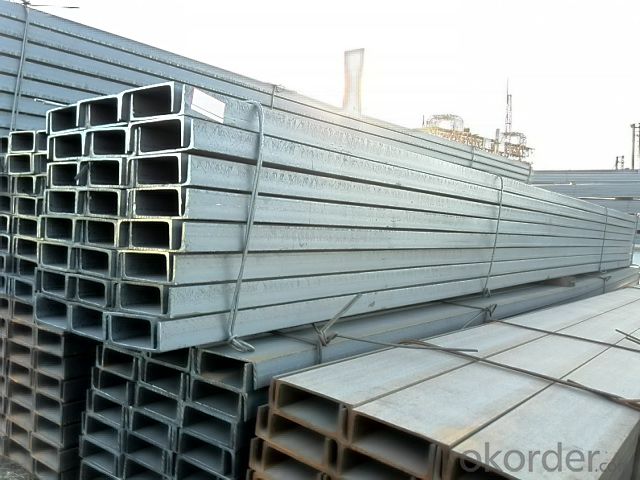
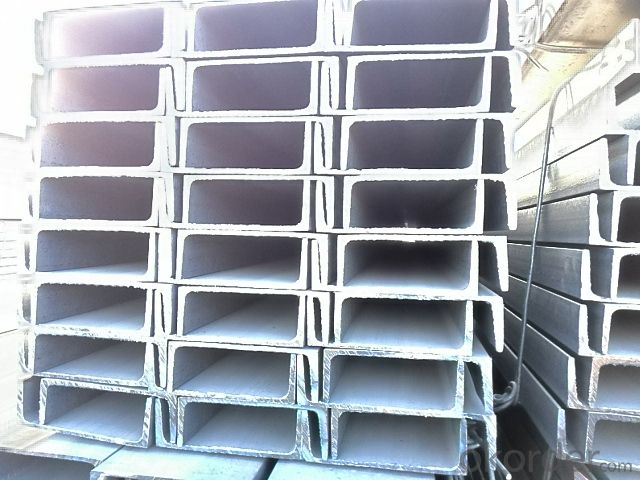
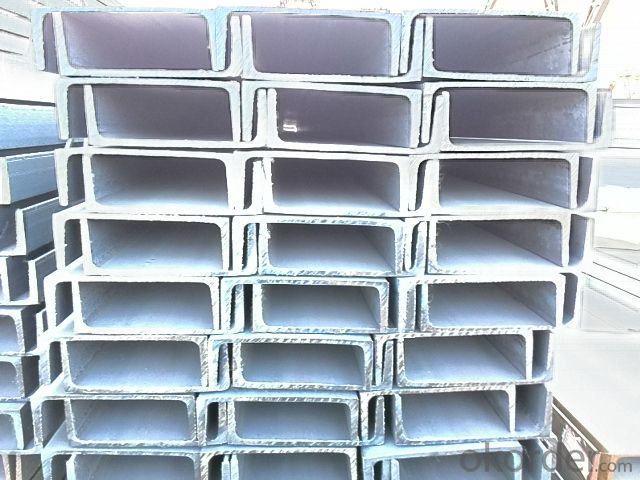
- Q:Can steel rebars be used in residential foundation construction?
- Indeed, residential foundation construction can incorporate steel rebars. These rebars are widely utilized in reinforced concrete structures, including residential foundations, with the intention of bolstering their robustness and longevity. To reinforce and avert cracking or structural collapse, the rebars are typically positioned in a grid formation throughout the foundation. They play a crucial role in evenly distributing the building's load and enhancing its ability to withstand diverse forces, such as soil pressure, wind, and seismic activity. Furthermore, steel rebars possess corrosion resistance and are capable of enduring severe weather conditions, thereby rendering them a dependable option for residential foundation construction.
- Q:Can steel rebars be used in the construction of residential buildings?
- Yes, steel rebars can be used in the construction of residential buildings. Steel rebars are commonly used as reinforcement in concrete structures, including residential buildings, to provide added strength and stability. They help to distribute loads and prevent cracking or failure in the concrete. Steel rebars are widely used in residential construction projects to enhance the overall structural integrity and durability of the building.
- Q:What are the different types of steel rebars used in foundation constructions?
- There are several types of steel rebars commonly used in foundation constructions, each with its own unique properties and advantages. 1. Mild Steel Rebars: Also known as black bars, these rebars are made from carbon steel and have a low carbon content. They are widely used due to their affordability and versatility. Mild steel rebars are suitable for most general construction projects and offer good strength and durability. 2. High-strength Deformed Steel Rebars (HSD): These rebars have a higher tensile strength compared to mild steel rebars. They are manufactured by twisting the steel at high temperatures, resulting in a deformed surface that provides excellent bonding with concrete. HSD rebars are commonly used in heavy-duty structures where high strength is required, such as bridges and tall buildings. 3. Epoxy-Coated Rebars: These rebars are coated with epoxy resin to provide protection against corrosion. Epoxy coating acts as a barrier between the steel and the surrounding environment, preventing the penetration of moisture and chemicals that can cause rusting. Epoxy-coated rebars are commonly used in areas with high humidity or exposure to corrosive elements, such as coastal regions. 4. Stainless Steel Rebars: These rebars are made from corrosion-resistant stainless steel, typically containing chromium and nickel. Stainless steel rebars offer exceptional resistance to corrosion, making them ideal for structures exposed to aggressive environments or chemicals. They are commonly used in marine constructions, wastewater treatment plants, and areas with high chloride content. 5. Galvanized Rebars: These rebars are coated with a layer of zinc to provide corrosion protection. The zinc coating acts as a sacrificial layer, corroding in place of the steel rebars. Galvanized rebars are widely used in areas with high humidity or exposure to chemicals, such as parking garages, highway structures, and industrial buildings. 6. Welded Wire Mesh: Although not a traditional rebar, welded wire mesh is commonly used in foundation constructions. It consists of interconnected steel wires welded together to form a mesh grid. Welded wire mesh offers reinforcement and helps distribute loads evenly across the foundation. It is often used in slabs, foundations, and retaining walls. Overall, the choice of steel rebars for foundation constructions depends on factors such as the project's requirements, environmental conditions, and budget constraints. It is essential to consider the specific needs of the construction project and consult with structural engineers to determine the most suitable type of steel rebars to ensure a strong and durable foundation.
- Q:What is the purpose of steel rebars?
- Steel rebars serve the purpose of reinforcing and strengthening concrete structures. These rebars, also referred to as reinforcing bars, consist of steel rods or wires, which function as tension devices to provide extra strength to the concrete. By being embedded within the concrete, rebars aid in the even distribution of applied loads, thereby preventing the concrete from cracking or failing when under pressure. This reinforcement is particularly crucial in structures like buildings, bridges, and highways, which endure heavy loads or potential stress, as it enhances their durability and structural integrity. Due to their strength, durability, and resistance to corrosion, steel rebars are extensively utilized in construction projects. As an essential component, they ensure the long-term stability and safety of concrete structures.
- Q:How do steel rebars contribute to the overall sustainability of a project?
- Steel rebars contribute to the overall sustainability of a project by enhancing the durability and strength of reinforced concrete structures. This allows for longer lifespan, reduced maintenance needs, and decreased material waste over time. Additionally, steel rebars can be recycled, reducing the demand for new steel production and minimizing the environmental impact of the project.
- Q:How do steel rebars contribute to the sustainability of a building?
- There are several ways in which steel rebars contribute to the sustainability of a building. To begin with, the utilization of steel rebars in reinforced concrete structures enhances the overall strength and durability of the building, thus extending its lifespan. This, in turn, reduces the frequency of repairs or replacements, resulting in less material consumption and waste generation over time. Moreover, steel rebars are manufactured from recycled materials, with a significant proportion being derived from scrap metal. This helps to decrease the demand for new steel production, which is an energy-intensive process and contributes to carbon emissions. By making use of recycled steel rebars, buildings can significantly reduce their carbon footprint and conserve natural resources. Furthermore, steel rebars aid in improving the structural integrity of the building, making it more resistant to various external forces such as earthquakes, hurricanes, and other natural disasters. This increased resilience decreases the potential for catastrophic damage and the subsequent need for major reconstruction or demolition, thus saving both resources and costs. Additionally, the utilization of steel rebars allows for the construction of taller and more open spaces, enabling efficient use of the building's footprint. This is particularly relevant in urban areas where land availability is limited. By enabling the construction of taller buildings, steel rebars contribute to urban densification, which helps to reduce urban sprawl and preserve natural habitats. Lastly, steel rebars are highly recyclable at the end of their service life. When a building is demolished, the steel rebars can be easily extracted and recycled, avoiding the accumulation of construction waste in landfills. The recycling of steel rebars saves energy and reduces the need for extracting and processing new materials, further contributing to the sustainability of the construction industry. In conclusion, steel rebars play a crucial role in enhancing the sustainability of a building by increasing its durability, utilizing recycled materials, improving structural resilience, enabling efficient land use, and facilitating the recycling of materials at the end of a building's life cycle.
- Q:Can steel rebars be used in both residential and commercial construction?
- Yes, steel rebars can be used in both residential and commercial construction. Steel rebars are commonly used as reinforcement in concrete structures to provide added strength and durability. They are suitable for a wide range of applications, including foundations, walls, columns, beams, and slabs, which are common elements in both residential and commercial construction. The use of steel rebars ensures that the concrete structures can withstand the loads and stresses imposed on them, making them suitable for various construction projects, regardless of their scale or purpose.
- Q:What are the guidelines for handling and disposing of steel rebars after demolition?
- The guidelines for handling and disposing of steel rebars after demolition typically involve several steps. Firstly, the rebars should be carefully removed from the demolished structure using appropriate tools and equipment to ensure worker safety. Once removed, the rebars should be inspected for any damages or contaminants that may affect their reuse or recycling potential. If the rebars are in good condition, they can be cleaned and stored for future use in construction projects. However, if they are damaged or cannot be reused, they should be properly recycled. This involves sorting them based on their grade and size before sending them to a recycling facility. If recycling is not possible, the rebars should be disposed of in a designated landfill or waste management facility following local regulations and guidelines to minimize environmental impact. It is crucial to follow these guidelines to promote sustainable practices and reduce waste in the construction industry.
- Q:How are steel rebars protected against galvanic corrosion in concrete?
- Steel rebars are protected against galvanic corrosion in concrete through the use of various methods, such as epoxy coating, concrete cover, and corrosion inhibitors. These measures create a barrier between the rebar and the concrete, preventing direct contact and minimizing the risk of galvanic corrosion. Additionally, proper concrete mix design and curing techniques can also contribute to reducing the likelihood of corrosion in steel rebars.
- Q:Can steel rebars be used in structures with high radiation shielding requirements?
- Structures with high radiation shielding requirements can indeed utilize steel rebars. Steel is renowned for its remarkable strength and durability, making it a favored option for reinforcing concrete structures. In terms of radiation shielding, steel rebars possess the capability to effectively offer a certain level of protection due to their dense composition. Although steel itself is not as potent a radiation shield as materials like lead or concrete, it still plays a role in reducing radiation transmission. The density of steel aids in dispersing and absorbing some of the radiation that passes through the structure, thus diminishing overall exposure. However, it is crucial to recognize that structures with exceptionally high radiation shielding requirements may necessitate additional measures. These measures could involve incorporating other radiation-absorbing materials such as lead or concrete, or implementing specific design features to enhance the structure's shielding capabilities. Ultimately, the selection of materials and design considerations should be made in collaboration with radiation safety experts and engineers who can evaluate the specific shielding requirements and propose the most suitable solutions.
1. Manufacturer Overview |
|
|---|---|
| Location | |
| Year Established | |
| Annual Output Value | |
| Main Markets | |
| Company Certifications | |
2. Manufacturer Certificates |
|
|---|---|
| a) Certification Name | |
| Range | |
| Reference | |
| Validity Period | |
3. Manufacturer Capability |
|
|---|---|
| a)Trade Capacity | |
| Nearest Port | |
| Export Percentage | |
| No.of Employees in Trade Department | |
| Language Spoken: | |
| b)Factory Information | |
| Factory Size: | |
| No. of Production Lines | |
| Contract Manufacturing | |
| Product Price Range | |
Send your message to us
JIS Standard U-channels with best quality
- Loading Port:
- Tianjin
- Payment Terms:
- TT OR LC
- Min Order Qty:
- 25 m.t.
- Supply Capability:
- 10000 m.t./month
OKorder Service Pledge
OKorder Financial Service
Similar products
New products
Hot products
Related keywords
